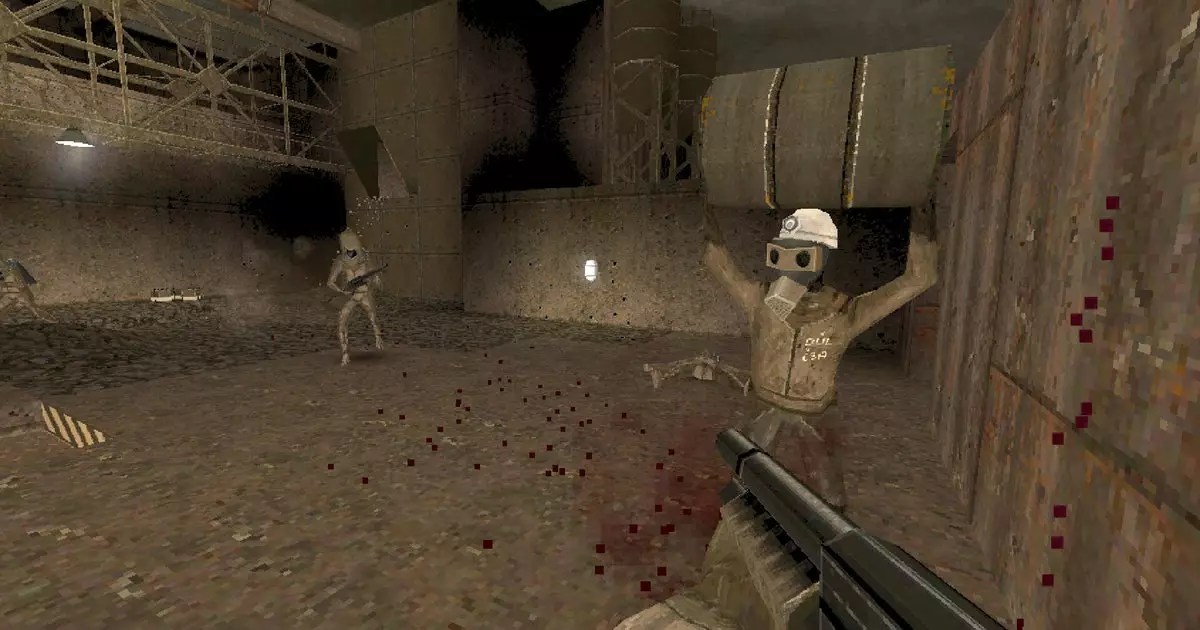In the realm of video games, where immersive experiences and rich narratives reign supreme, even the smallest annoyances can shadow a game’s overall perception. The recently resolved issue with dog barking in Hrot, a nostalgic shooter that draws inspiration from the likes of Quake, has exemplified this point. Players often find themselves embroiled not just in the thrill of gunfire and exploration, but also in the elements that disrupt their journey. A barking dog may appear trivial at first glance, but its implications hint at broader questions about game design, player expectations, and the evolving landscape of indie games.
When game developer Spytihněv announced a fix for persistent dog barking in Hrot, it was evident that this was no mere oversight. For some players, these canines were locked in an “unbearable” loop of noise, transforming a beloved aspect of the game into a source of frustration. This situation raises critical reflections on how development teams test and troubleshoot their products. Bugs, especially in sound design, can often escape scrutiny, making their presence felt years after a game’s release. As players on Linux systems voiced their discontent, it became apparent that testing across varied platforms is essential for ensuring a seamless experience.
The experience surrounding this barking issue speaks volumes about player expectations. When someone embarks on a gaming adventure, they seek not only combat and challenges but also an environment that feels coherent and immersive. The barking, in its initial intended purpose of adding realism, ultimately detracted from that experience for many. It serves as a stark reminder that developers must continuously listen to their audience to understand how in-game elements function as part of the broader landscape of gameplay.
Hrot, at its core, aims to juxtapose absurdity with social commentary. Players navigate a world rich with themes drawn from Czechoslovakia’s history, where they face everything from surreal combat situations to poignant reflections on the past. This intricacy, however, can be undermined by a single persistent audio glitch. While the game promises quirky encounters—such as combating a gas-masked horse—players are jolted back to reality with the incessant yapping of dogs. Such design choices must strike a delicate balance; humor and historical satire should not become marred by technical oversights.
The developer’s realization that “some people don’t like dog barking while [firing guns]” indicates a lack of thorough understanding regarding player sentiment. Perhaps this reflects a larger issue in indie game development—one of iterative learning. While developers often have a vision, the execution must also embrace player feedback. Only through diligent testing and post-launch engagement can developers align their ambitions with the expectations of their audience.
The barking issue has undoubtedly catalyzed a discussion about how a singular element can affect the reception of an entire title. For Hrot, the success of the game lies in its ability to marry its unique narrative with engaging, well-executed mechanics. As games continue to evolve, developers will need to prioritize both innovation and the continuous refinement of their work. The transition from Hrot to Spytihněv’s upcoming project, a retro RTS named Shrot, could signify an encouraging step forward—a chance to build on lessons learned while creating a game that potentially avoids past pitfalls.
Ultimately, Hrot stands as an emblem of both the challenges and triumphs inherent in indie game development. As players delve into its multifaceted experience, the hope is that they can appreciate the game’s unique quirks while remaining unforgiving of the technical flaws that impact immersion. Moving forward, the community’s voice will remain central in shaping the games of tomorrow. The dynamics of play, expectation, and developer accountability are ever-intertwining threads in the complex tapestry of the gaming landscape.


Leave a Reply